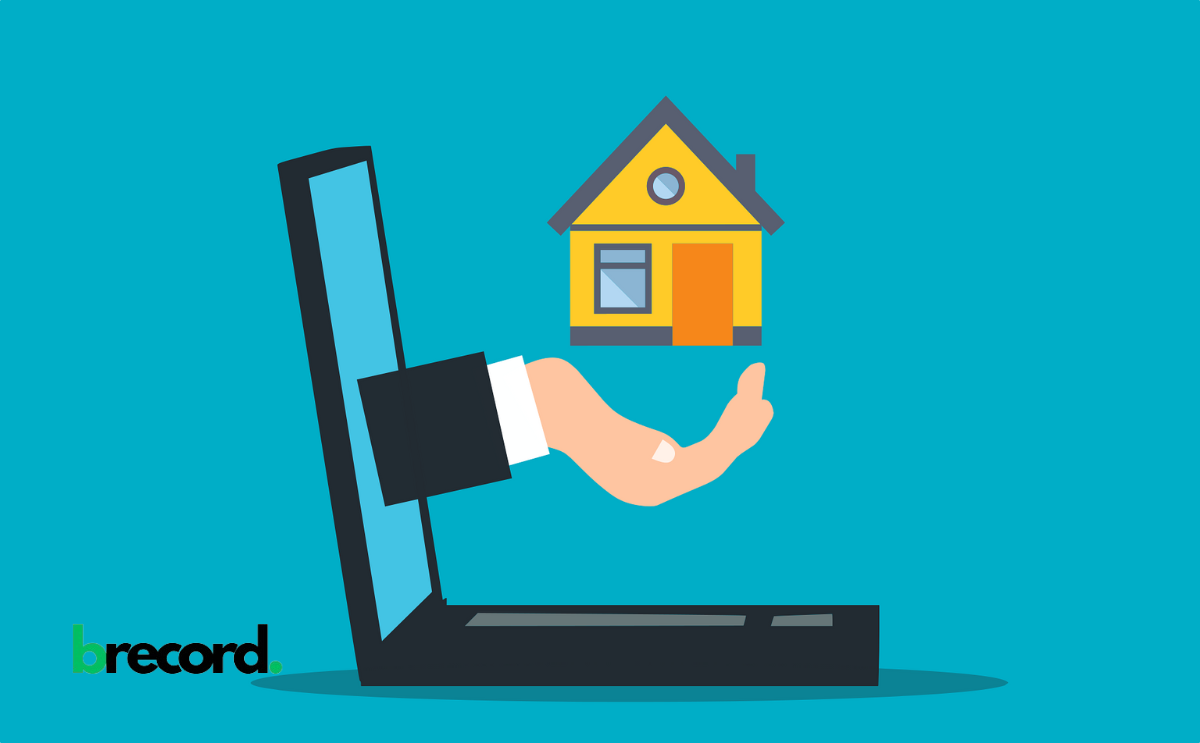Greetings from the leading edge of digital creativity, where the meet pixels and property and a new wave of ownership is reshaping virtual landscapes! In this era of rapid technological change, the concept of real estate is changing in ways that go beyond traditional boundaries. Imagine owning a prime piece of cyberland in a bustling metaverse or giving your brand a presence in an eye-catching window on the internet – it’s no longer just wishful thinking; this is the beginning of digital real estate! In this article, we will take an in-depth look into online property ownership, exploring how blockchain technology, NFTs, and immersive virtual environments are revolutionizing investment opportunities. Unraveling why digital real estate is more than just another trend towards our increasingly interconnected tomorrow.
Introduction to Digital Real Estate
Digital real estate is transforming ideas about ownership of properties. It used to be limited to physical items like land or houses as investments in real estate. Now however, virtual lands and other online assets have become important for many investors with interest on technology.
Imagine possessing a good spot within a crowded place in the world made up by bits. With such technological advancements as blockchain and augmented reality among others coming into play; digital assets now are not just screen pixels but symbolize value, innovation and imagination.
In order to get closer to what it feels like to own an online space we are going to analyze different aspects concerning this amazing world of digital properties. It may well be one thing after another all the way from its genesis up until now when you discover why everyone has been talking about this trend lately across all sectors. If you want to spend your money judiciously or merely want some idea about these territories unchartered before there is much information that can be obtained regarding this industry knowns as digital real estate.
What is Digital Real Estate?
Digital real estate encompasses intangible assets having value within cyberspace. These include domain names, websites and even areas in virtual reality.
Contrary to the traditional property ownership, digital real estate is within a digital framework where it can be bought, sold or developed just like physical properties.
Websites make money through ads and online trade. Domain names often become more valuable as they grow old owing to their rarity.
Digital real estate enthusiasts are also turning to virtual worlds. Some of these include games and metaverse platforms where individuals invest or brand spaces bought on them.
Owning a piece of the internet is fast becoming feasible when companies shift to online engagements. This has made many investors eye this sector for its potential growth.
The Rise of Virtual Property Ownership
Virtual property ownership has gained increasing momentum over the past few years. As technology has advanced, more people have started looking at land and assets in such environments as their own.
Virtual worlds like Decentraland and The Sandbox have caught headlines with users buying, selling, developing properties among others things online. These platforms offer an immersive experience just like those in the real world but still exist only on the web.
Gaming environments also contribute to this rise. Players can buy virtual houses thereby improving gameplay while possibly appreciating its value with time.
This growing interest shows a shift in basic perception about ownership. Due to the increasing technological connectedness of our society, it is undeniable that people are increasingly attracted by the idea of owning part of the virtual world. With time, these markets will mature and investors will look at them not only as instruments for personal pleasure but also significant sources of wealth.
Rewards from Investing in Digital Real Estate
Investing in digital real estate has a number of benefits. The first one is that there are low entry barriers which make it possible for different kinds of investors to participate. You don’t need huge amounts of money like with conventional property investment.
Another good thing about this expanse is its flexibility. You can access virtual properties from any corner on earth; thus, asset management becomes practical even without geographical boundaries.
Moreover, digital real estate often appreciates rapidly due to rising demand. When virtual worlds expand, opportunities for profit grow too.
Also, you can generate passive income through leasing or renting out virtual spaces unlike in traditional real estate where this does not happen.
The sense of community also boosts worthiness. Engaging with individuals who share your interests can facilitate partnerships and come up with innovative suggestions which lead to growth in this field.
Lastly, investing in digital properties aligns with technological trends and consumer preferences shifting towards online experiences and environments.
How are Digital Properties Bought and Sold?
Purchasing and disposing off digital properties is an exciting activity because after all one is exchanging assets that exist only virtually. You first have to identify the platform where you want to invest such as virtual worlds or domain names.
After selecting a marketplace do some research on other listings available. Consider such features as location within the metaverse and existing user engagement when looking for valuable assets.
When ready to buy, ensure you understand the transaction process. Many platforms accept transfering; hence be ready to set up a digital wallet if you haven’t done so already.
If you want to sell digital property, marketing skills are a must. Use social media and online forums in order to make your product known. Stress unique features that may attract buyers like customization options or traffic statistics.
In the end, always keep an eye on market trends. Digital real estate is highly dynamic, so by being informed businesses can optimize profits when exiting.
Challenges and Risks of Digital Real Estate
However, investing in digital real estate has its own limitations with one major concern being market volatility. As in traditional real estate, prices of such assets are subject to huge swings based on trends and users’ interest.
Cybersecurity is yet another major risk associated with these properties. For example if hacking occurs and access to properties stolen; investors will suffer huge financial losses. Nevertheless, this fact is often ignored despite it essentiality.
Moreover, the lack of regulation creates uncertainty. No clear guidelines would mean that you could have unsuspecting buyers going around scams.
Technological advances also matter here. Investors who do not follow industry trend will find themselves disadvantaged as what is trendy today might be outdate tomorrow.
Lastly, understanding the true value of digital assets presents difficulties due to varying metrics for success and performance across platforms.
Future Predictions for the Industry
The future of digital real estate seems set for massive growth ahead as technology continues to advance leading to rise of virtual reality (VR) and augmented reality (AR) environments in particular.
These sites seem set to change the way people interact with internet properties. Just think of moving around a digital home before buying or having virtual reality experiences in mind!
Also, blockchains will be involved. It will keep transactions more transparent and secure; hence buying becomes more reliable.
In addition, we may witness decentralized marketplaces where users can trade directly with each other without intermediaries. If this happens, individuals could find themselves empowered and the very notion of ownership redefined entirely.
Lastly, commercial spaces in the metaverse might become more common as business interest increases. This is an area that companies seeking to establish their online presence may invest heavily in.
There may also be new forms of digital property driven by creativity – not land or buildings as you know them!
Conclusion
Digital real estate is not a fad but rather it is shaping the future of property ownership. As more people experience virtual environments and engage in digital platforms, there is an increase in demand for online properties. The possibility of significant returns on investments puts wind behind this sector.
Investing in digital real estate offers unique benefits. They include an opportunity cost that traditional real estate cannot match like lower entry costs and global reach. However, one must proceed with caution through these difficulties due to issues regarding volatility within markets and regulatory uncertainty affecting your investment decisions.
Digital asset landscape is rapidly evolving . Technological advancements are likely to create new channels for growth as well as interaction here . For anyone thinking about entering into this market , keeping a close watch on these trends would be very advantageous .
It all comes down to personal goals and risk tolerance when it comes to investing in digital real estate . This emerging field holds exciting possibilities for those who are ready to embrace innovation while conducting thorough research .



